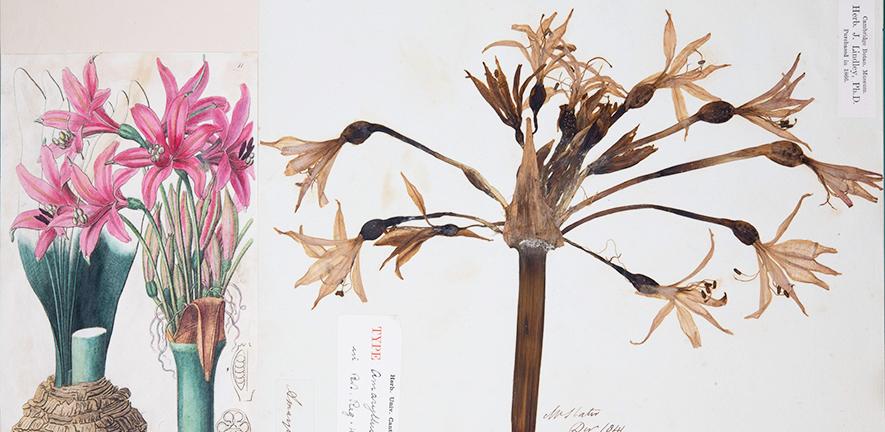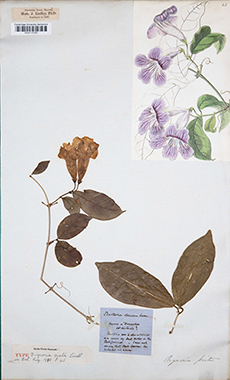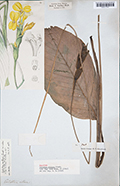
Submitted by Anonymous on Thu, 22/12/2022 - 10:49
New funding to help University Herbarium identify and digitise globally-important specimens
Cambridge University Herbarium’s new grant from the Isaac Newton Trust will fund a Special Collections Researcher to focus on identifying a significant proportion of the estimated 50,000 type specimens held in this extraordinary collection. The project will result in these specimens being databased and imaged, and made freely available to researchers worldwide.
Plant detectives to root out type specimens
Type specimens are essential sources of reference for plant taxonomists - they are the original samples upon which species are described and scientifically published, and the most fundamentally important and sought-after specimens used to support plant taxonomy, systematics, and ecological and conservation research. Of the 1.1 million specimens in the University Herbarium, several thousand have so far been identified as type specimens, but sampling across the rest of the collections has indicated that the true number of types held in the collection is likely to be as high as 50,000 sheets, representing 10-20% of all described plant species.
'Even if many of us may be unaware of herbaria, all plant scientists are everyday users of herbarium specimens, namely through Type specimens, i.e the first collections of a particular species on which they were first described and named,' said Dr Samuel Brockington, academic lead for the Herbarium. 'Type specimens underpin all botanical nomenclature, including routine names such as Arabidopsis thaliana. The 50,000 type specimens are perhaps among our most important scientific objects at the University of Cambridge, and this project takes a vital step in making these scientific treasures available to the global community”.
At the heart of this exciting project is the historical detective work often required to identify and confirm a specimen’s status as a type specimen. With the help of Herbarium staff and colleagues around the world, the researcher may need to map a specimen’s journey through various collections and consult descriptions found in species protologues and botanical treatments.
A wide range of sources will be used in this work, from notes made by the collector in the field decades or even centuries ago, through to online databases such as the International Plant Names Index, Biodiversity Heritage Library, Tropicos, Plants of the World Online, JSTOR Plants, and the Global Biodiversity Information Facility.
‘The Herbarium is an immensely valuable scientific collection and is highly valued by the research communities we serve. Our type specimens are especially important and are our most frequently requested specimens for study by researchers from all over the world,' said Dr Lauren Gardiner, Curator of the Herbarium. 'Currently each request for a historic type specimen has to be researched and physically searched for in the collections, one by one. With over a million specimens, this can take a long time and we might not always find a particular specimen in the time available.'
'These new funds will allow a dedicated researcher to concentrate on locating as many of the type specimens we hold here in Cambridge as possible during the project. The work will hugely increase the accessibility of the University Herbarium for researchers around the world, as we make specimens openly accessible in global repositories, and will enable us to properly support and contribute to the global research community who rely on these specimens.'
Earlier this year the University Herbarium was the first standalone herbarium to be awarded prestigious ‘Designated’ status as a collection of outstanding national importance by Arts Council England. Established in 1761, the University Herbarium is home to many important specimens, including those collected by Charles Darwin on his round-the-world journey from 1831-1836, John Lindley’s 19th century horticultural collections, and Oliver Rackham’s extensive 20th century British and global herbarium, amongst many others.


